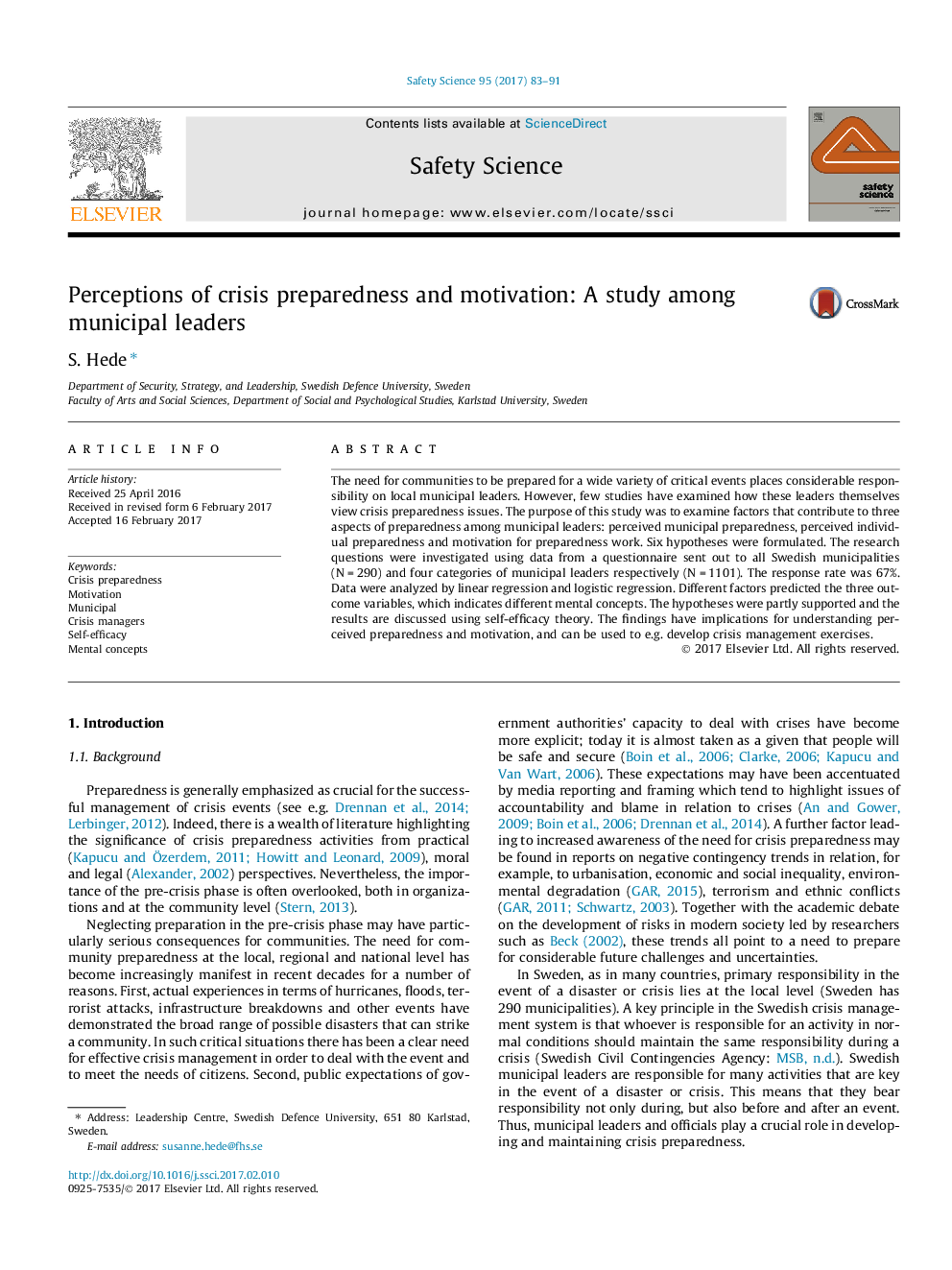| Article ID | Journal | Published Year | Pages | File Type |
|---|---|---|---|---|
| 4981262 | Safety Science | 2017 | 9 Pages |
Abstract
The need for communities to be prepared for a wide variety of critical events places considerable responsibility on local municipal leaders. However, few studies have examined how these leaders themselves view crisis preparedness issues. The purpose of this study was to examine factors that contribute to three aspects of preparedness among municipal leaders: perceived municipal preparedness, perceived individual preparedness and motivation for preparedness work. Six hypotheses were formulated. The research questions were investigated using data from a questionnaire sent out to all Swedish municipalities (NÂ =Â 290) and four categories of municipal leaders respectively (NÂ =Â 1101). The response rate was 67%. Data were analyzed by linear regression and logistic regression. Different factors predicted the three outcome variables, which indicates different mental concepts. The hypotheses were partly supported and the results are discussed using self-efficacy theory. The findings have implications for understanding perceived preparedness and motivation, and can be used to e.g. develop crisis management exercises.
Keywords
Related Topics
Physical Sciences and Engineering
Chemical Engineering
Chemical Health and Safety
Authors
S. Hede,
